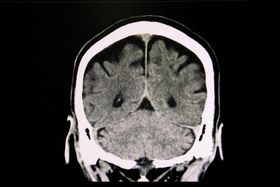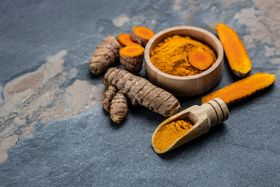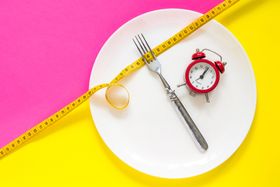Using Coenzyme Q10 to Lower Cholesterol
Intake of CoQ10 via food or supplements can help reduce cholesterol levels. CoQ10 can also prevent or lower the side effects of statins such as muscle aches.
Published August 24, 2022.
Coenzyme Q10, also known as CoQ10, is produced by your body and is used to make energy. Normally, your body makes sufficient CoQ10 to use and your cells store them in the mitochondria. With age and in certain diseased conditions, the concentration starts to dwindle. Supplementing with CoQ10 can help fill in those gaps.
Researchers suggest that CoQ10 reduces cholesterol levels by lowering LDL cholesterol and increasing HDL cholesterol levels (1), improves blood vessel health by 42 percent (2), reduces blood clots, assists with heart health, and is great for migraines.
How Coenzyme Q10 and Statin Drugs Interact
Studies have stated that in statin users, the level of CoQ10 is lower in both the muscle tissues and blood. As a result, the muscle cells produce less energy leading to fatigue, aches, and inflammation (3).
Taking CoQ10 supplements might prevent or reduce the side effects of statin drugs. A study published in the American Journal of Cardiology observed that 100 mg of CoQ10 taken daily reduced muscle pain by 40 percent amongst statin users (4).
How to Lower Your Cholesterol Safely
- Reduce your carb intake and avoid your sugar: Refined carbs and sugars are the cause of high triglyceride levels. If you remove them from your diet, your triglycerides come back to the normal range reducing your total cholesterol levels.
- Practice Intermittent Fasting (IF): IF triggers fat burning and lowering of cholesterol in addition to other health benefits.
- Eliminate trans-fat: Trans-fat increases your bad cholesterol and lowers good cholesterol. Eliminating foods such as fried foods, commercial baked goods, margarine, and shortening can help revert the condition.
- Increase fiber intake: Fibers, especially soluble fibers, help excrete cholesterol out of the body, thereby decreasing the absorption of cholesterol into your bloodstream. In fact, 5-10 grams of fiber daily can reduce your total and LDL cholesterol levels by 5-10 points (5).
- Exercise regularly: Exercise can reduce blood sugar levels and therefore total triglyceride levels.
- Take omega-3 fatty acids: They reduce the LDL cholesterol and triglyceride levels by inhibiting their synthesis in the liver (6).
Conclusion
CoQ10 and cholesterol have an inverse relationship. Intake of CoQ10 via food or supplement can help reduce cholesterol levels and prevent or lower the various side effects of statins such as muscle aches.
Related Posts
Marie-Claire De Villiers
Hypercholesterolemia vs. Hyperlipidemia: Understanding the Differences
Marie-Claire De Villiers
Is High Cholesterol a Comorbidity?
Deseré Davis
Where Does Cholesterol Come From?
Marie-Claire De Villiers
Does High Cholesterol Cause High Blood Pressure?
Deseré Davis







